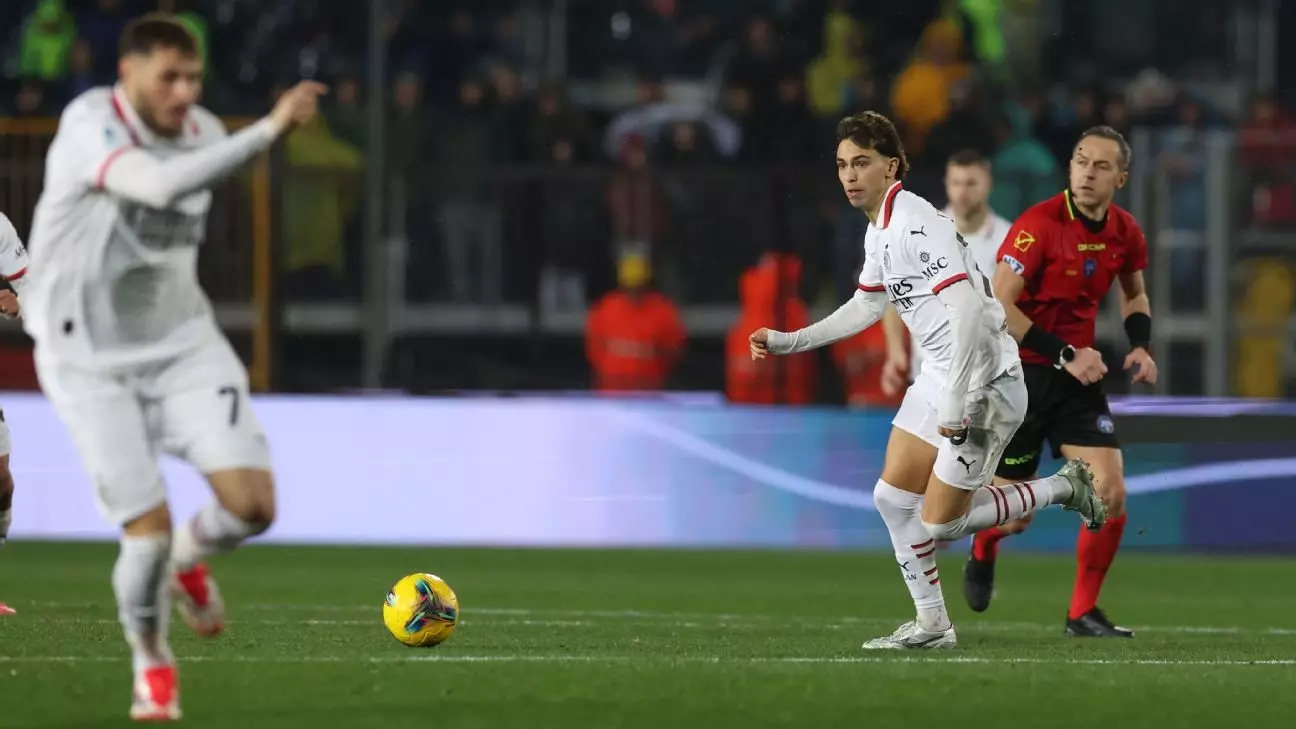Chelsea Football Club recently witnessed a significant transition in its squad as head coach Enzo Maresca addressed the media regarding the departure of forward João Félix. The comments made by Maresca are intriguing, especially in light of Chelsea’s mounting injury woes that might typically call for the presence of every available player. His assertion that the team “don’t miss” Félix, now on loan at AC Milan, reveals a complex interplay between personal sentiment for a player and the strategic necessities of managing a competitive football club.
The timing of Félix’s departure coincided with a series of unfortunate injuries plaguing the Chelsea roster. Notably, the club faced the task of fielding a competitive side against Brighton in the FA Cup, with Christopher Nkunku stepping up as a central striker after the likes of Nicolas Jackson and Marc Guiu were sidelined. Here, the challenge lay not only in player availability but also in devising a tactical strategy that can adapt to these sudden changes. Nkunku’s rare start highlights a pressing need for depth in the squad—a solution that necessitated hard decisions like the one that allowed Félix to leave.
Félix’s time at Chelsea was marked by a struggle to find form, having joined from Atlético Madrid for a hefty fee of €50 million ($55.4 million) that included add-ons. Despite the expectations tied to such an investment, the Portuguese international only scored once in his twelve appearances and started a mere three games. This level of output is far from satisfactory for a player of his caliber, and it raises questions about his fit within the tactical setup of the team. Maresca’s comments regarding the player’s happiness in Milan underscore a pivotal point: player satisfaction can often lead to better performance, both for the individual and the clubs involved.
Moving forward, Chelsea needs to focus on building a resilient squad capable of weathering injury storms and adapting to personnel changes. Maresca, while firm in his stance about Félix, must now navigate the challenges of maintaining squad morale and performance levels amid significant player turnover. The goal remains not only to recover from this injury-laced phase but also to cultivate emerging talents and maximize their contributions in critical fixtures.
Chelsea’s current predicament is emblematic of the broader struggles faced within modern football, where decisions about player management and squad depth can have immediate repercussions on both performance and morale. As the club continues to adjust to the evolving landscape—both on and off the pitch—Maresca’s comments may well serve as a reminder that sometimes, letting go can illuminate the paths ahead.

